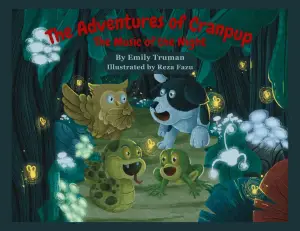We Don’t Talk About Carol by Kristin L. Berry: A Reflection on Silence and Representation
When I first came across We Don’t Talk About Carol, the title resonated deeply with me, given my fascination with the silences that often weave through family dynamics. Kristin L. Berry’s homage to the countless Black individuals who disappear without a trace, and the families left to grapple with that haunting absence, drew me in from the start. The narrative promises more than just a story; it offers an exploration of the complexities of silence, reputation, and the burdens that families carry.
At its core, Berry elegantly addresses key themes such as domestic violence, mental illness, and the impact of childhood trauma. The protagonist navigates the labyrinth of family secrets and societal expectations, underscoring a powerful truth: our public personas are often at odds with the private turmoil we endure. One quote that particularly struck me reflects this tension: “That’s why it’s very important that we don’t talk about private family matters with anyone outside of this family.” It encapsulates the weighty silence that many families are expected to uphold, a silence that can stifle healing.
Berry’s writing is a breath of fresh air in a genre where misrepresentations of mental health are all too common. I was genuinely moved by her meticulous and compassionate depiction of mental health challenges. It’s a rarity to find a narrative that balances accuracy and empathy without passing judgment on the parental figures involved. This thoughtful approach truly helps illuminate the healing journey for those grappling with their past.
The book moves at a brisk pace, effortlessly drawing the reader in with its smooth prose. Berry doesn’t throw in convoluted twists; instead, she paces her story steadily, allowing readers the opportunity to unravel the mystery alongside the protagonist. For anyone who enjoys a blend of autofiction and memoir, this narrative reads as both intimate and authentic—a mashup that has become one of my favorite genres to dive into.
Among many memorable moments, a particularly poignant passage resonated with me: “Statistically, if they were to go missing one day, they would be less likely to be found than a white child. The idea made my blood boil.” Berry’s thematic work here is painfully relevant, igniting a fire within me as it addresses a systemic issue that can’t be overlooked.
The bond between the two sisters in the story was another highlight, showcasing how shared trauma can sometimes forge stronger connections. It gives a sense of hope to see siblings who weathered storms together yet rise as friends in adulthood. This dynamic beautifully illustrates the resilience often found in familial ties, even under the weight of shared pasts.
I wholeheartedly recommend We Don’t Talk About Carol to fans of true crime fiction, autofiction, or those interested in the nuances of family dynamics. If you found yourself captivated by FOX by Joyce Carol Oates, you will likely find this book equally compelling.
Ultimately, Berry’s narrative reminded me of the complexities woven into family life, the silences we uphold, and the hope that even those grappling with trauma can find connection and healing. It’s a poignant read that lingers long after the final page and serves as a call for empathy, understanding, and conversations that we can no longer afford to suppress. Thank you to Kristin L. Berry and her team for sharing this vital story.
[ad_2]
Discover more about We Don’t Talk About Carol on GoodReads >>






